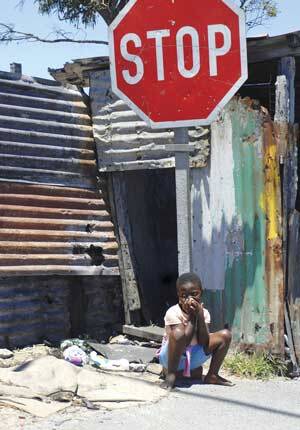The Group of Eight countries have issued a glowing report card to themselves, but an independent assessment of development aid being provided by the world’s leading industrialized countries since the G-8 summit in L’Aquila, Italy, in 2009, as well as evaluations by aid agencies and activists from poor countries, are not so complimentary.
The G-8’s Muskoka Accountability Report—issued June 20 as final preparations were being made for the summit in Huntsville, Ontario, on June 25-26—takes a mostly positive view of how well summit participants have kept their commitments. It notes “considerable success,” while acknowledging “it has further to go to fully deliver on its promises.” But the G-8 Research Group at the University of Toronto said the leading industrial nations complied with a little more than half of their promises on development, trade, climate change, global security and other issues. Canada did somewhat better than average, meeting about two-thirds of its commitments, good enough for third place, tied with the European Union.
Britain remained in the top spot in the annual analysis of G-8 performance; Japan edged up to second; and the United States was fifth. Canada has led the way on accountability, a major theme of this year’s G-8 meeting and the related Group of 20 conference scheduled to follow in Toronto on June 26-27, said Jim Cornelius, executive director of the Canada Foodgrains Bank. But while G-8 officials talk about accountability, the aid community is still waiting for a report in detail about how last year’s $22 billion in pledges for food security and agricultural development was allocated, Cornelius said.
Cornelius said he hopes new accountability mechanisms will make it easier to track G-8 and G-20 performances. “What Canada has been doing is working hard on setting up a whole framework for follow-up to all commitments, not just the L’Aquila ones,” he said. “If that is successful, then the same sort of mechanism can be used to assess the success or the follow-through on maternal and child health.”
But ticking off promises kept and holding annual meetings that concentrate on single issues might not be enough when all the issues are linked, according to activists from Kairos, an ecumenical social justice advocacy organization. The activists toured Canada in advance of the summit to discuss issues they contend are being overlooked by G-8 nations. For instance, straight investments in agriculture will not work without taking into account the effects of climate change, said Naty Atz Sunc, general coordinator of the Association for Community Development and Promotion in Guatemala. Since Hurricane Mitch hit Guatemala in 1998, poor farmers have found it difficult to re-establish their livelihoods because weather patterns have been unpredictable.
Farmers in Kenya have tried to plant crops three times since 2009, only to be frustrated by uncharacteristic drought and weather patterns that village elders say they have never seen before, said Isaiah Kipyegon Toroitich, a program officer working for Norwegian Church Aid in the East African nation. “You can easily see communities becoming poorer and poorer,” he said.
Ordinary citizens should care enough about poverty alleviation to look past G-8 press releases and see the serious issues, Cornelius said. “The challenge is to be able to look below the surface, because a lot of what happens on the surface is hype.”








